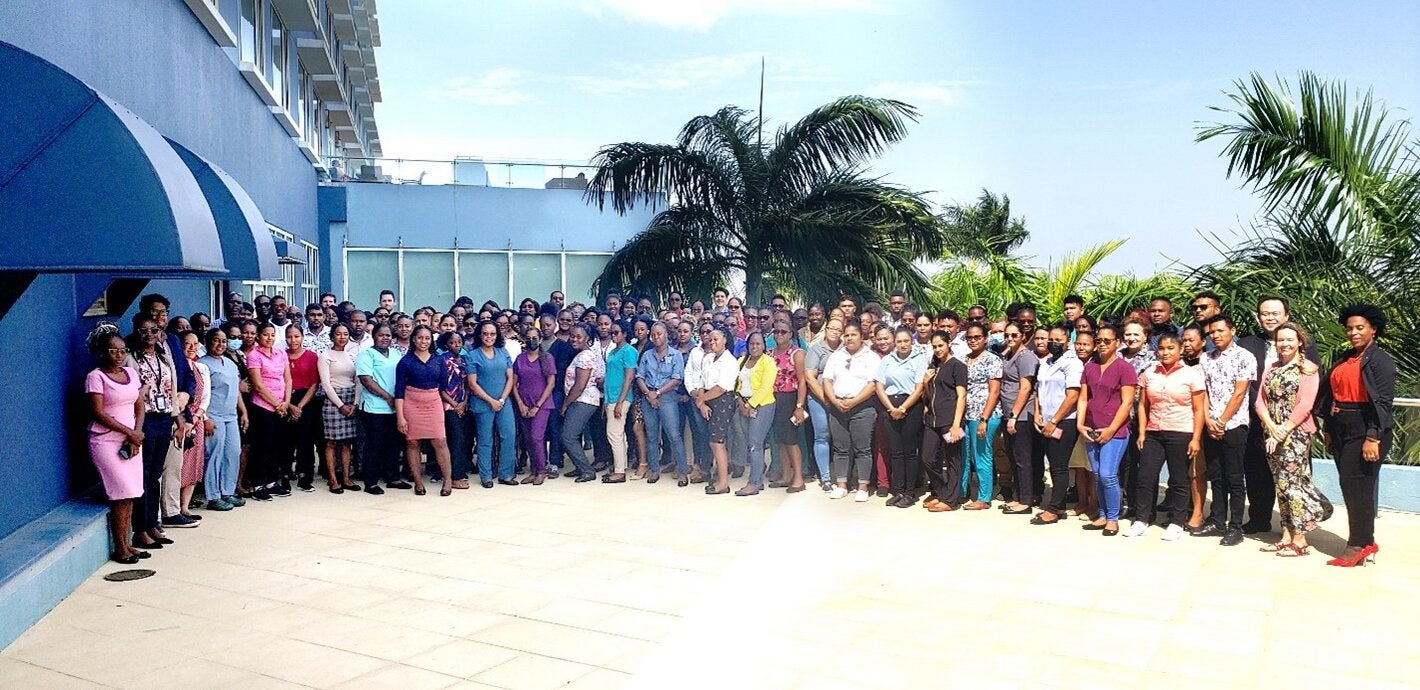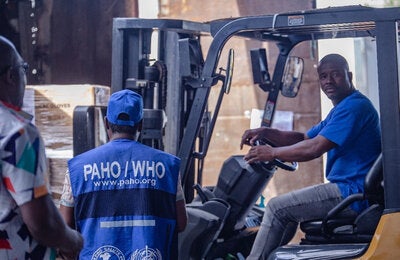
The Pan American Health Organization/World Health Organization (PAHO/WHO), Centers for Disease Prevention and Control (CDC), and Task Force for Global Health (TFGH), in collaboration with the Ministry of Health (MOH), conducted a week-long in-person training at the Guyana Marriott Hotel, in preparation for the scheduled implementation of 2023 Ivermectin, Diethylcarbamazine and Albendazole (IDA) Impact Survey (IIS). The survey is to confirm that the Lymphatic Filariasis (LF) infection status has reduced to a level where it can be considered as no longer a public health issue in Guyana and subsequently continue with other key activities towards certification of its elimination in the country.
One hundred and thirty participants were selected and trained on the concepts, methods, and tools to implement IIS in Guyana, which will commence in February and April this year. The team also implemented a two-day pilot in a selected location in central Georgetown to conduct validation of the sampling procedures and survey questions, laboratory testing, data entry, estimation of the duration of the data collection, and to understand, detect, and prevent imminent challenges that could arise during the fieldwork.
Guyana is one of four countries in the Region of the Americas where LF caused by Wuchereria bancrofti is still endemic. In 2018, based on the evidence of the effectiveness and safety of the IDA regimen, the Ministry of Health, Guyana, decided to use the triple medication in the eight endemic areas (implementation units, IUs). The upcoming IIS is the first in a series of surveys to assess LF transmission in the country. Guyana’s trailblazing efforts on LF elimination are part of its commitment to champion integrated disease elimination stated in its National Action Plan for Neglected Infectious Diseases 2022 – 2027.



